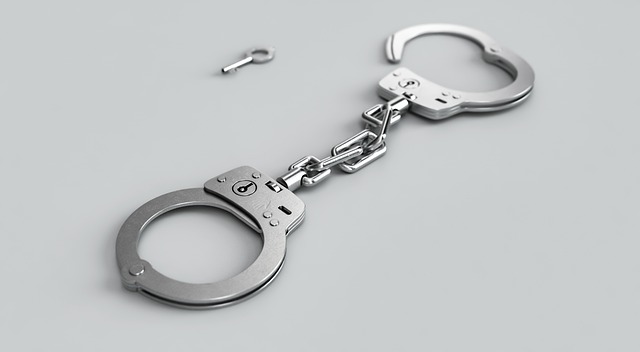The Role of a Local Attorney in Community Disputes
Introduction
Community disputes are as old as communities themselves. From disagreements between neighbors over property boundaries to disputes between local businesses, these conflicts can disrupt harmony, damage reputations, and in some cases, escalate into legal battles.
In such situations, a local attorney plays a crucial role—not only as a legal representative but also as a mediator, advisor, and problem-solver.
This article explores the multifaceted role of a local attorney in resolving community disputes, highlighting their responsibilities, benefits, and real-life impact. Whether you are a homeowner, tenant, business owner, or community leader, understanding the attorney’s role can help you navigate local conflicts more effectively.
1. Understanding Community Disputes
Community disputes are conflicts that arise within a specific geographical or social community. Common examples include:
-
Neighbor disputes (noise complaints, fence or property line issues, tree overhang conflicts)
-
Homeowners’ association (HOA) conflicts
-
Landlord-tenant disagreements
-
Local business disputes
-
Public nuisance complaints
-
Zoning and land use issues
-
Small claims between residents
While these disputes may seem minor compared to large corporate litigation, they often carry significant emotional, financial, and social consequences.
2. Why Local Attorneys Are Different
A “local attorney” isn’t just any lawyer practicing law—they are embedded in the community they serve. This gives them:
-
Familiarity with Local Laws and Regulations
Every municipality or county may have its own ordinances, zoning rules, and enforcement mechanisms. A local attorney knows these inside and out. -
Connections with Local Authorities
They often have relationships with local judges, mediators, law enforcement, and municipal boards. -
Understanding of Community Culture
They appreciate the social dynamics, cultural norms, and history that might influence a dispute. -
Accessibility
Local attorneys are physically closer and more available for in-person meetings, site visits, or court appearances.
3. Roles a Local Attorney Plays in Community Disputes
A. Legal Advisor
A local attorney’s first job is to explain the legal standing of each party. They help clients understand:
-
Whether their complaint is legally valid
-
Which laws or ordinances apply
-
The rights and obligations of both sides
-
Possible legal remedies and limitations
This advice prevents unnecessary escalation and ensures that actions taken are lawful.
B. Mediator and Negotiator
Many community disputes can be resolved without formal litigation. A local attorney can act as:
-
Mediator — facilitating communication between parties to reach a voluntary agreement
-
Negotiator — advocating for their client’s interests while aiming for a mutually acceptable solution
This approach saves time, reduces costs, and preserves relationships.
C. Litigator
When mediation fails, a local attorney represents their client in:
-
Small claims court
-
Municipal hearings
-
State court cases
-
Administrative law proceedings (e.g., zoning appeals)
Because they know the local court system, they can navigate it efficiently.
D. Community Educator
Some attorneys go beyond case-by-case work to educate the community:
-
Hosting workshops on tenants’ rights
-
Publishing guides on HOA rules
-
Advising neighborhood associations
-
Giving talks at local schools about conflict resolution
By doing so, they help prevent disputes before they arise.
E. Problem-Solver and Peacekeeper
In small communities, reputation matters. A skilled local attorney often plays the role of peacekeeper, helping parties find solutions that protect relationships and community cohesion.

4. Common Scenarios Where Local Attorneys Step In
1. Neighbor Boundary Disputes
Two homeowners may disagree over where one property ends and another begins. A local attorney can:
-
Review property deeds and surveys
-
Work with land surveyors
-
Negotiate agreements or initiate quiet title actions
2. Noise and Nuisance Complaints
When noise, odors, or other disturbances affect quality of life, attorneys may:
-
Review municipal nuisance ordinances
-
Send cease-and-desist letters
-
File complaints with local enforcement agencies
3. HOA Conflicts
Disputes between homeowners and HOAs can be complex. Attorneys assist with:
-
Reviewing bylaws and covenants
-
Representing clients at HOA board hearings
-
Filing or defending against legal action
4. Landlord-Tenant Disagreements
Common issues include:
-
Security deposit disputes
-
Eviction defense or enforcement
-
Lease interpretation
Local attorneys know landlord-tenant laws and can help both sides reach fair outcomes.
5. Small Business Disputes
When two local businesses clash—over contracts, competition, or shared property—attorneys can mediate or litigate.
5. Benefits of Using a Local Attorney in Community Disputes
-
Faster Resolution — They understand local procedures and can act quickly.
-
Cost Efficiency — Less travel, fewer delays, and knowledge of alternative dispute resolution options.
-
Better Communication — Easier face-to-face meetings and direct negotiation.
-
Tailored Strategies — Solutions based on community norms and expectations.
-
Long-Term Peace — Solutions that aim for harmony, not just legal victory.
6. Alternative Dispute Resolution (ADR) and Local Attorneys
Many local attorneys favor ADR—including mediation and arbitration—to resolve conflicts without prolonged court battles. ADR can:
-
Preserve relationships
-
Save money
-
Offer more flexible outcomes
-
Keep disputes private
Local attorneys often partner with trained mediators or serve as mediators themselves.
7. Case Study: How a Local Attorney Resolved a Neighborhood Dispute
Consider a real-life example:
Two neighbors were in conflict over a tree whose branches extended into one property and whose roots were damaging a shared fence. Tensions escalated to shouting matches.
A local attorney stepped in:
-
Reviewed local tree and property laws
-
Facilitated a joint meeting to hear both sides
-
Proposed a compromise — the tree owner would pay for root barriers, while the other would trim overhanging branches at their own expense
-
Drafted a written agreement to avoid future disputes
The outcome preserved both the fence and the friendship.

8. How to Choose the Right Local Attorney for a Community Dispute
When selecting an attorney, consider:
-
Experience with local cases
-
Reputation in the community
-
Approach to conflict resolution
-
Availability for meetings and site visits
-
Clear communication style
-
Transparent fee structure
9. The Preventive Role of Local Attorneys
Beyond resolving disputes, attorneys can help prevent them by:
-
Drafting clear contracts for property sales or rentals
-
Advising HOAs on fair rules
-
Educating landlords and tenants about their rights
-
Reviewing development plans for zoning compliance
This preventive approach reduces legal costs and stress.
10. Challenges Local Attorneys Face
While they are invaluable, local attorneys also encounter challenges:
-
Bias concerns in small communities
-
Limited resources compared to big-city firms
-
Balancing advocacy with community relationships
Successful attorneys navigate these with professionalism and ethical boundaries.
11. The Future of Local Legal Support in Community Disputes
With growing populations, urban expansion, and digital communication, community disputes may become more complex. Local attorneys will likely:
-
Use online mediation platforms
-
Offer virtual consultations
-
Engage in community planning discussions to reduce future conflicts
Conclusion
The role of a local attorney in community disputes goes far beyond simply “going to court.” They are advisors, mediators, educators, and problem-solvers who keep communities functioning smoothly.
Whether it’s a property line disagreement, an HOA conflict, or a small business feud, having a trusted local attorney can mean the difference between a long, bitter battle and a quick, amicable resolution.
By investing in a relationship with a local attorney before disputes arise, community members can protect their rights, preserve harmony, and ensure that when conflicts do occur, they are handled with fairness and expertise.
THANKS TO READ MY ARTICLE OF THE ROLE OF A LOCAL ATTORNEY IN COMMUNITY DISPUTES
IF YOU WANT MORE ARTICLES OF THIS TYPE PLEASE CLICK HERE
